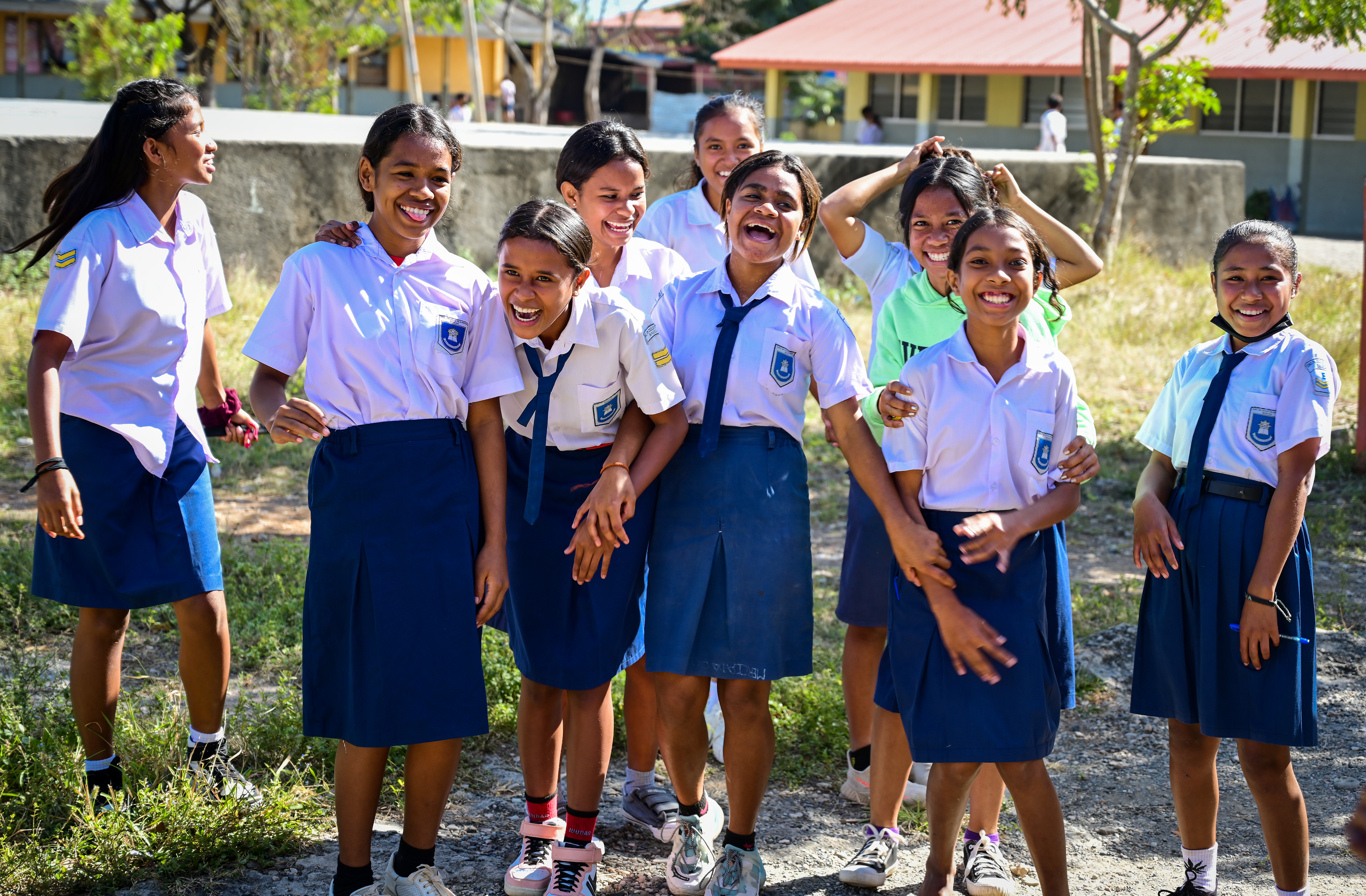Timor-Leste is one of the world’s newest nations to gain independence in 2002. The picturesque island country has made significant progress over the past two decades, but food security and malnutrition are among the acute challenges that it continues to face. Forty seven percent of children under five years of age in Timor-Leste are stunted, 8.6 percent suffer from acute malnutrition, and 23 percent of women of reproductive age (15 -49 years) are anemic, according to the World Food Programme (WFP). Timor-Leste is also known to be a food deficit country with heavy reliance on imports, and all these challenges predominantly put the younger population in the country at risk of diseases.

© Cirilo
To put focus on the health and nutrition of the children, the World Health Organization, along with the Ministry of Health and Ministry of Education, Youth and Sports and the WFP in Timor-Leste launched the Say No To 5S project targeting Starvation, Soil-Transmitted Helminthiasis, Skin Diseases, Smoking & Sugary/Alcoholic Drinks on 8 March 2022. The Korea International Cooperation Agency (KOICA) has provided a generous donation of US$ 7.8 million for the project that will go on till 2025.
“Schools are the ideal place to promote healthy behaviours and practices that can be sustained through the lives,” said Dr Arvind Mathur, WHO representative to Timor-Leste. “In many ways, education and health are intertwined with each other. Poor health will lead to poor educational outcomes and less education limits the opportunities for better health. The SN5S project, is therefore an important opportunity to set the focus on health, nutrition and food security of school aged children with the collective efforts of WHO, WFP, KOICA and the Government of Timor Leste,” added Dr Mathur.
© Nalda
The SN5S project aims at reaching out to nearly 300,000 children over the next few years, with a focus on reducing and eliminating major risk factors such as malnutrition and other diseases by introduction of mineral- and vitamin-rich fortified rice as a part of the school meals programme and upgrading kitchens and canteens to ensure hygienic and nutritious school meals. The project will also provide technical support and capacity building for the roll out and monitoring of Primary Healthcare Package in schools. This package will include distribution of deworming medication, regular measurement of body weight and height of students, screening for skin conditions, promotion of physical activity, healthy diet and WASH etc. In addition, the project will also look at introducing and updating the health and nutrition related topics in the school curriculum.
 © Cirilo
© Cirilo
The pilot surveys under the SN5S project were conducted in June 2022 in three schools in Dili. Three questionnaires were developed- for school coordinators, teachers and students- with the help of consultants from Mumbai based International Institute of Population Sciences (IIPS). The school coordinators were to answer 43 multiple choice questions, teachers were to answer 75 and students were to answer 92 questions.
 © Cirilo
© Cirilo
During the pilot survey, the WHO team tested the questionnaire, gathered feedback from coordinators, teachers, students as well as enumerators and improvised it further.
 © Cirilo
© Cirilo
The baseline survey began in July 2022 and lasted for over three weeks during which the staff visited 64 schools across the country, interviewed 64 school coordinators, 217 teachers and over 1998 students in grades 7-9. The staff travelled long distances in remote areas to reach the schools across all municipalities.
 © Cirilo
© Cirilo
The baseline survey included the improvised questionnaire to be answered by coordinators, teachers and students. The questions ranged from understanding the children’s daily dietary habits, intake of junk food, reliance of high sugar and high salt products to gauging the health and nutrition related knowledge, attitude and practices among them.
 © Nalda
© Nalda
The WHO team also examined the school kitchens and made notes about their upkeep and hygiene practices.
 © Cirilo
© Cirilo
The baseline survey also included a review of the kind of food available in the school canteens and stores within and nearby the school premises.
 © Cirilo
© Cirilo
The filled questionnaires were scanned and sent to the IIPS team which is now in the process of collating the data and generating a final report. In the meanwhile, the WHO team is microplanning the roll out of primary healthcare package and mass drug administration for Soil-Transmitted Helminthiasis in coordination with the Ministry of Health and Ministry of Education, Youth and Sports.
“As we move forward in this project, I am confident that influence of the program will not be limited to school boundaries but will extend to students’ families and communities,” said Dr Mathur. “Our young boys and girls who will be healthier and smarter, equipped with knowledge of healthy habits and behaviours, will practice, and convey these health messages to their families and communities as health educators, promoters, change agents and role models,” he added.
